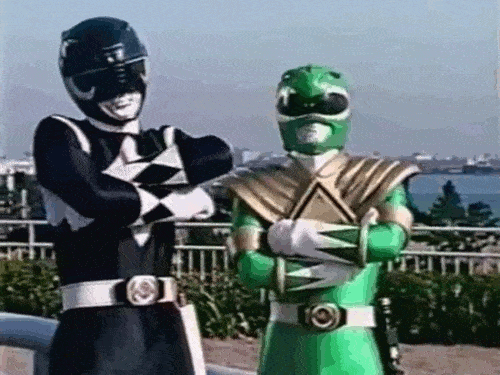#Question: Is Crossing Arms Bad Body Language?
Talk Nerdy To Me®’s @staffwriter
We’ve probably all heard that crossing your arms is a sign of hostility or defensive body language, but is it really always bad to do? Is there ever a time when crossing your arms can be helpful or positive? In this article, we’ll look at what experts say about, “Is crossing arms bad body language?”
What Is Crossing Arms Body Language?
Let’s start by explaining exactly what we mean by crossed arms body language. This is when someone stands with their arms crossed in front of their chest, typically with their hands under their biceps.
It can also refer to sitting with your arms crossed.
While the arms-crossed position is often associated with negative emotions like anger, frustration, or anxiety, it’s not always the case. In some situations, crossing
Is Crossing Arms Bad Body Language? (Not Necessarily)
Now that we know what crossing your arms looks like, let’s explore what body language experts say about whether or not it’s always a bad thing.
The answer is that crossed arms are not always bad body language.
In many common situations, it doesn’t matter:
When you are alone
When you are cold (and everyone around you clearly knows it is cold)
When you are relaxing with people who know you very well
However, in other situations, crossed arms body language can prove problematic:
When you meet someone new
When interpreting your body language is difficult
When trying to connect with someone
When in a disagreement with someone
What Do Crossed Arms Mean in Body Language?
Crossed arms mean different things in different contexts. There are at least three main interpretations of crossing arms body language.
Here are those interpretations.
1) The Person Is Defensive
Crossed arms can mean that a person is feeling defensive.
Crossed arms provide a physical barrier that can help to block incoming threats, both real and perceived. When we feel threatened, our bodies go into fight or flight mode, and crossed arms are one way of preparing for fight.
By creating a physical barrier, we are sending a clear message that we are not open to attack.
Crossed arms can also help to protect our hearts, which are seen as a symbol of emotional vulnerability. By crossing our arms, we are literally shielding our hearts from harm.
Crossed arms can also be used as a way of self-comforting when we feel anxious or stressed. The act of hugging oneself can help to create a sense of calm and safety. So, the next time you see someone with their arms crossed, don’t automatically assume that they’re being unfriendly. They may just be feeling a little bit defensive.
2) The Person Is Uncomfortable
When someone crosses their arms, it can be a sign that they are feeling uncomfortable.
There are a few different situations where this might be the case. For example, if someone is attending a social gathering where they don’t know anyone, they might cross their arms to protect themselves from feeling awkward or exposed.
Or, if someone is listening to someone else speak and they disagree with what is being said, they might cross their arms to physically express their discomfort.
3) The Person Is Cold
Crossed arms can sometimes be a sign that a person is cold. If you see someone crossing their arms over their chest, it’s worth considering whether they might be cold.
It’s important to look for other body language cues to see if someone is really cold.
Sometimes people will shiver, or their teeth will chatter when they’re cold. If you see someone exhibiting these signs, they might be crossed because they’re trying to keep warm.
Don’t automatically assume the person is uncomfortable or closed off from connection.
Is Crossing Arms Bad Body Language for Males?
When you cross your arms, you send a nonverbal message that you’re closed off, unapproachable, and uninterested in the person or people around you.
It’s often considered to be one of the most negative forms of body language and is often interpreted as a sign of hostility.
For men, crossing their arms can be especially problematic since it can make them appear domineering or even threatening. In a business setting, for example, crossing your arms in front of your chest can give your colleagues the impression that you’re not open to new ideas or willing to compromise. In social situations, it can make you seem unfriendly and unapproachable.
Is Crossing Arms Bad Body Language for Females?
Crossed arms can make a woman person appear unapproachable, mean, or arrogant. Crossed arms can be a problem in both personal and professional situations.
If you’re trying to make new friends or build business relationships, appearing unapproachable is the last thing you want to do.
Is Crossing Arms Bad Body Language for Dates?
When you meet someone for the first time, you have a limited opportunity to make a good impression. And one of the most important things you can communicate is your interest level. Unfortunately, crossing your arms sends the opposite message.
It communicates that you are:
Closed off
Uninterested
Disengaged
In fact, experts say that crossed arms are one of the most common body language cues that people use to signal disinterest. If you find yourself crossing your arms on a date, it’s best to uncross them as soon as possible. Not only will it make you appear more interested and engaged, but it will also help you to be more interested and engaged in the conversation.
Is Crossing Arms Bad Body Language in Interviews?
When it comes to interview body language, crossing your arms is generally seen as a bad move. Crossing your arms makes you seem guarded and unapproachable. This is obviously not the message you want to send in an interview, where you’re trying to make a good first impression.
Crossing your arms can also be interpreted as a sign of boredom or impatience. Again, not the message you want to convey in an interview situation.
And finally, crossing your arms can quite simply make you look uncomfortable. Even if you’re not consciously aware of it, this discomfort will likely come across in your tone of voice and body language, which can negatively affect the outcome of the interview.



